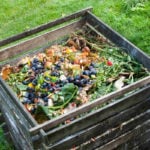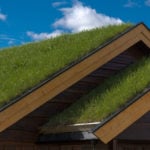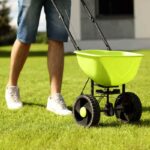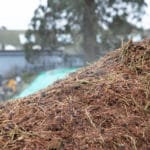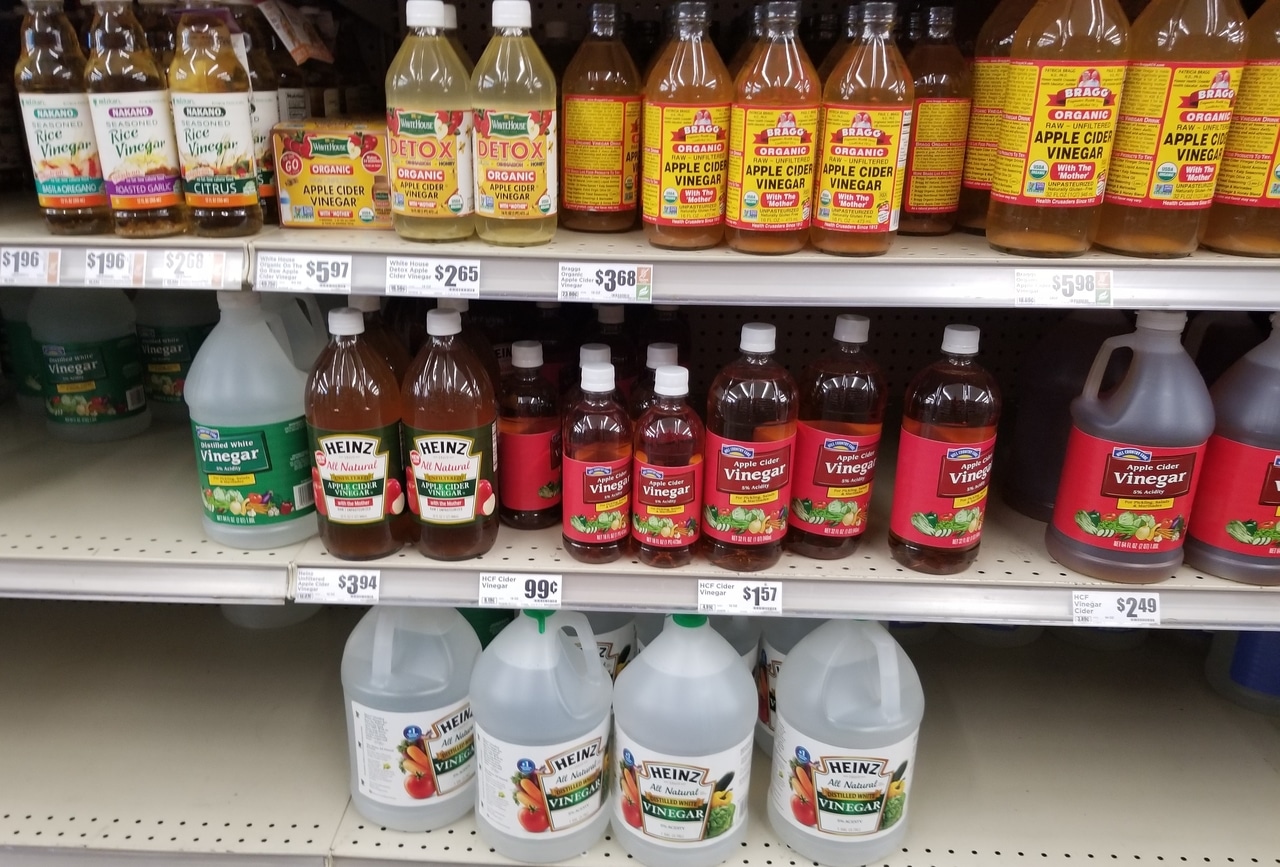
Vinegar is the key to great salad dressings, but it’s not the ultimate weed killer, despite all the online recipes hailing it as such. Vinegar is usually better off staying on the kitchen shelf.
“The repeated sprays of salt-containing [vinegar weed killer] recipes can lead to too much soil salt buildup, and recipes that use [kitchen vinegar] but leave out the salt are nowhere near as effective,” says Darren Strenge, plant health manager and moss garden manager at the Bloedel Reserve in Washington State.

Photo Credit: Don McKinney
Asked if using vinegar for weed control seemed worth it in the long run, Strenge, who also a contributor to West Sound Home & Garden magazine, replied, “Mostly, I would say, ‘No.’”
Regardless, seemingly simple, safe, and “natural” vinegar weed killer recipes are popular with organic gardeners and sustainable-lawn lovers, or anyone else thirsty for environmentally friendly ways to save time pulling weeds.
But the science is in and experts have spoken: Using vinegar to kill weeds just isn’t worth it. For one, it may not be the effective weed killer you had hoped for. And some vinegar weed killers could even be dangerous.
Looking for eco-friendly options? See this list of eco-friendly weed killing alternatives.
Why the Evidence Isn’t There
Despite the abundance of how-to vinegar herbicide recipes online, there are no scientific tests or trials showing the veracity of how well kitchen vinegar works to kill weeds — and that’s only one red flag for would-be vinegar users.
Organic gardening websites and homesteader blogs are prone to powerful personal testimonies of their own success with vinegar. This can add to vinegar’s mystique, but also to its misleading hype.
When you steer away from anecdotal evidence and look at more expert sources, you’ll find that vinegar’s virtues are very much a mixed bag. The University of Maryland Extension, for example, lists that there are far more cons than pros to using it.
In summary, these are:
Pros
- Kills weeds rapidly, causing death in 24 hours.
- Effective for killing small seedling-stage annual broadleaf weeds.
- Vinegar biodegrades and breaks down quickly (not salts, however).
Cons
- Permanently kills only broadleaf weeds; grasses and perennials grow back.
- Only kills above-ground growth, root systems are unaffected.
- Needs multiple applications to be effective.
- Nonselective, will harm or kill your good plants if applied; drift can be harmful to your garden and flower beds.
- The odor may be unpleasant.
- Vinegar may tarnish metal equipment, requires cleaning after application.
- Should not be sprayed on reactive metal (aluminum, tin, iron).
- Though multiple applications needed, should not be applied more frequently than every two weeks.
- Can irritate skin and trigger an allergic reaction; frequent exposure may cause chronic bronchitis, dermatitis and erosion of teeth.
The above list applies only to “horticultural vinegar pesticides” (containing at least 20% acetic acid, the corrosive chemical that kills weeds). These are much stronger than the grocery store-bought white or apple cider vinegars (containing only 5%).
Top Garden-Strength Vinegar Products
How to Make Homemade Vinegar that Actually Works
Experts including Strenge, however, will say kitchen vinegar recipes do work in some capacity, but only in some ways and with limits.
“Vinegar weed killers can work if used properly,” he said, “as long as users understand repeated sprays will be necessary, and that there are potential problems with using vinegar weed killers in their gardens.”
The one homemade recipe Strenge has seen work in action: 1 gallon of vinegar (5% acetic acid) mixed with 1 cup salt and 1 tablespoon dish soap, with an emphasis on the salt making its low concentration effective.
“It will burn weeds on contact under the right conditions: warm, dry, sunny days,” he said. Put it in a spray bottle and aim carefully.
But again, this comes with a caveat. “Users should be aware, however, that just because the ingredients are mostly harmless to humans and larger animals, it doesn’t mean those ingredients can’t be detrimental to the environment and other forms of life,” he said.
At another point, Strenge added, “I don’t really recommend using vinegar and salt weed killers [often] because of potential problems from repeated use.”
Why Vinegar Weed Killers Can Be Dangerous
When you hear “organic” or “natural weed killer,” it’s an easy trap to believe vinegar is entirely safe. Right? Wrong. Vinegar’s corrosive substance, acetic acid (the chemical that does your weed killing for you), apparently comes with some risks.
If not careful, acetic acid can cause burns, permanent damage to skin and tissues, and even blindness if accidental contact is made with the eyes.
Here’s the risk some users take: Upon finding their 5% homemade vinegar recipes don’t work as well, they might be tempted to jump up to the 20% concentration, not realizing they’re dealing with real-deal chemicals.
Strenge issued similar warnings: “The higher horticultural concentrations will work without added salt, but I am strongly opposed to untrained people using those stronger concentrations.
“5% is relatively harmless to users, but 20% can cause chemical burns,” he said, adding, “As long as users stick with 5% vinegar, the worst human health risk is minor eye irritation.”
To protect yourself, wear goggles and protective clothing while using horticultural vinegars. There is also a risk of chronic bronchitis, dermatitis, and even tooth erosion with repeated use and exposure.
Better, Safe Alternatives to Homemade Vinegar
So vinegar weed killer might be all it’s cracked up to be, but are there safe, natural alternatives?
As it turns out, there are very few weed killers that are both effective and chemical free, but there are some that have less-harmful chemicals than others. If you’re looking for a safe way to take care of weeds in your lawn, ditch the vinegar and try these alternatives instead.
FAQ About Vinegar for Other Household Uses
— Unclog your drain. If your drain. is slow-moving or has a minor clog, you’ll need 1/2 cup of baking soda and 1 cup of vinegar. Pour the baking soda down the drain and let sit for a few minutes. Then add the vinegar. Let it sit for another 15 to 20 minutes or until the bubbles stop. Then, flush the drain with hot water.
— How to get rid of ants in your home? A vinegar spray will sent the ants marching. You can mix it with water or simply pour white vinegar from the bottle. It repels ants, even after it has dried. But ants will go around it.
— Get rid of a cloudy film on your glasses. One way to test if your glasses are carrying a buildup of the calcium and magnesium in hard water is to wipe the lens with a little white distilled vinegar, AllAboutVision suggests. If the cloudiness disappears, you’re likely dealing with hard-water mineral buildup.
Try adding some of the vinegar to the warm soapy water you use to clean your glasses, but proceed with caution if your glasses have an anti-reflective coating.
Clean your pet’s ears. According to Almanac, dip a washcloth in a white vinegar solution of 4 tablespoons water, 1 tablespoon vinegar. Wash the inside of your dog’s or cat’s ears.
This partial list is from Consumer Reports:
— Wood flooring: Vinegar can mar the finish of your wood floor, and the manufacturer may void your warranty.
— Stone countertops: The acid in vinegar etches and dulls natural stone such as marble and limestone.
— Kitchen range: Vinegar won’t help you get rid of that greasy mess.
— Tools and knives: Vinegar can damage the finish and leave the edges pitted.
In the End, Is Vinegar Worth It as a Weed Killer?
While organic homemade vinegar weed killers sound quaint, easy, and safe to use, gardeners will run into a couple of obstacles.
First: These vinegar solutions are nowhere near as effective as they’d hoped they would be.
Second: The potential risks — whether to garden or lawn soil life, or to your own health — may outweigh the benefits.
Again, Strenge’s recommendation is a mixture of vinegar and salt and dishwashing soap for those dead set on making a backyard recipe. But that can also set you up with some soil problems, too, if you’re not careful.
Salt build-up “can become a significant problem from repeated use,” said Strenge, adding that repeated use with salt is the only way for 5% vinegar to be effective. “Table salt can contribute to sodium toxicity and potentially result in loss of other necessary nutrients from the soil.”
Strenge added that Epsom salts — not just table salts — can be used too, but also interfere with lawn and garden health. With all this being said, it may just be easier to pull those weeds out by hand than to use vinegar.
LawnStarter participates in the Amazon Services LLC Associates Program. LawnStarter may earn revenue from products promoted in this article.


